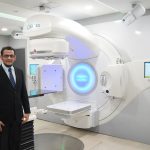The journey through cancer treatment is often fraught with challenges, both physical and emotional. One of the most significant factors that can influence a patient’s experience is the presence of a strong support network. Friends, family, and community members play a pivotal role in providing the emotional and practical support that cancer patients desperately need.
Emotional support is vital for patients coping with the anxiety and fear that often accompany a cancer diagnosis. Regular check-ins, compassionate listening, and offering a shoulder to cry on can make a world of difference. Encouraging open dialogue about feelings and fears can help patients feel less isolated in their struggles.
In addition to emotional support, practical help is equally important. Simple gestures, such as preparing meals, assisting with household chores, or accompanying patients to appointments, can alleviate some of the burdens associated with treatment. These acts of kindness not only provide tangible assistance but also reinforce the message that patients are not alone in their fight against cancer.
Moreover, support groups can offer patients a sense of belonging and understanding. Connecting with others who are undergoing similar experiences can foster camaraderie and provide valuable insights into coping strategies.
Healthcare providers also play a critical role in facilitating these support networks. By encouraging patients to reach out to their loved ones and providing resources for support groups, healthcare professionals can help create a robust support system.
In conclusion, the importance of support networks in the cancer journey cannot be overstated. By cultivating a strong community of support, we can significantly enhance the quality of life for cancer patients and their families, helping them navigate the challenges of this journey with strength and resilience.




